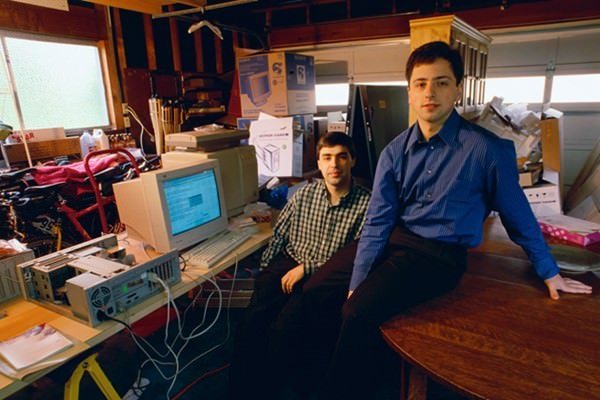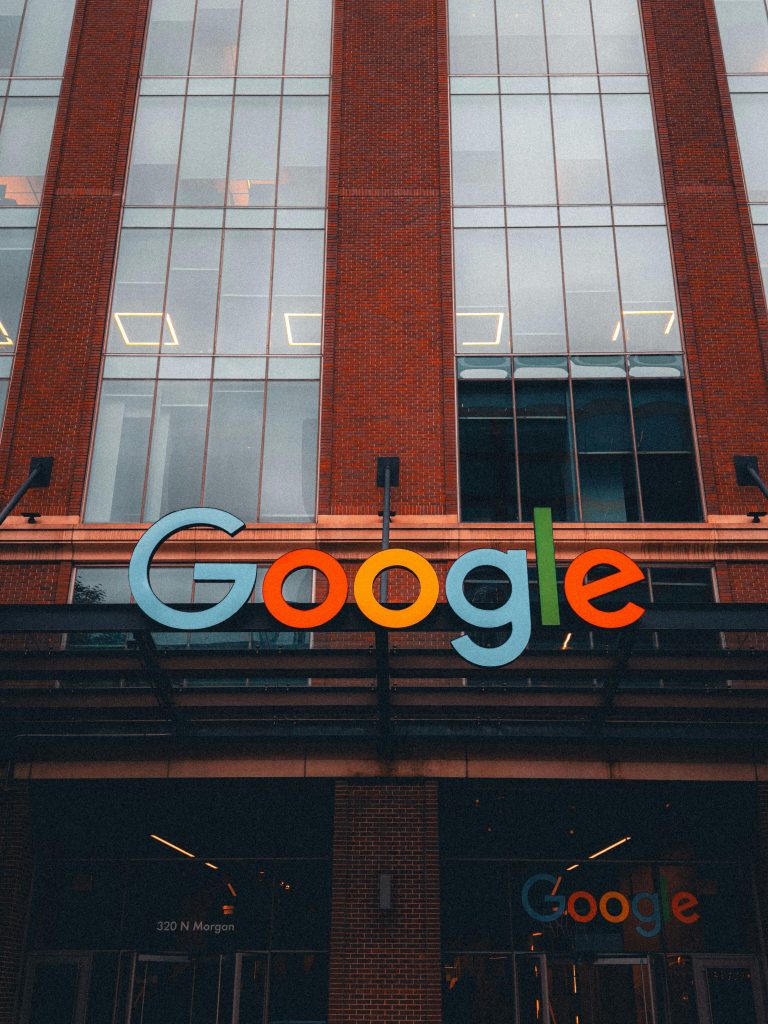Physical Address
304 North Cardinal St.
Dorchester Center, MA 02124
Physical Address
304 North Cardinal St.
Dorchester Center, MA 02124

In one quick glance: Google started as a student side-project in a cluttered garage and grew into a $1.8-trillion company that shapes how billions of people search, watch videos, navigate streets, store photos and—more recently—explore AI.

In 1995, graduate student Larry Page visited Stanford University. Sergey Brin was asked to show him around. They argued all day but liked each other’s sharp ideas. A year later, they built a program called Backrub to rank web pages by links. It worked so well that Stanford’s network kept crashing.
Wanting a fresh name, they chose Google, a play on the math word “googol” (a 1 followed by 100 zeros). Susan Wojcicki, who later ran YouTube, rented them her Menlo Park garage. Angel investor Andy Bechtolsheim wrote a $100 000 cheque on the spot after a quick demo. On 4 September 1998 Google Inc. was born.
By 1999, Google served 500 000 searches a day; by late 2000 it was the default search box for the web.
| Year | Product | Why It Stood Out |
|---|---|---|
| 2000 | AdWords | Self-serve ads that funded Google’s free services. |
| 2001 | Image Search | First tool to find pictures at scale. |
| 2004 | Gmail | Shocked users with 1 GB free e-mail when rivals gave 4 MB. |
| 2005 | Google Maps and the Android buy (see Acquisitions) | Made navigation and smart-phones Google-friendly. |
| 2012 | Knowledge Graph | Showed quick answers beside search links. |
| 2016 | Google Assistant | Voice AI in phones and smart speakers. |
| 2023 | Gemini AI | Google’s multi-modal chat rival to GPT-4. |
These launches built trust: people realised Google solved real-life problems, not just search.
(See horizontal bar chart above for prices.)
| Year | Target | Price | How It Helped |
|---|---|---|---|
| 2005 | Android Inc. | ≈ $50 M | Gave Google a phone OS now on 70 % of the world’s smart-phones. |
| 2006 | YouTube | $1.65 B | Turned into the world’s video town square and a $45 B a-year business. |
| 2007 | DoubleClick | $3.1 B | Added display-ad tech and cemented Google’s ad empire. |
| 2011 | Motorola Mobility | $12.5 B | Helped defend Android with patents, then resold hardware to Lenovo. |
| 2014 | Nest | $3.2 B | Brought smart-home devices and design talent. |
| 2019 | Looker | $2.6 B | Strengthened Google Cloud’s analytics tools. |
| 2021 | Fitbit | $2.1 B | Entered wearables and health data. |
| 2022 | Mandiant | $5.4 B | Boosted cloud security skills against hacks. |
| 2025* | Wiz (agreed) | $32 B | Could super-charge Google Cloud’s security and be its largest deal ever. |
*Pending regulatory approval.
Take-away: Google buys when speed matters more than building from scratch.
| Leader | Role Today | Key Fact | Latest Reported Pay |
|---|---|---|---|
| Larry Page | Board member, co-founder | Loves flying electric aircraft | Keeps a $1 salary; wealth from shares. |
| Sergey Brin | Board member, co-founder | Tests AI projects in Google X | Also takes $1 salary. |
| Sundar Pichai | CEO since 2015 | Rose from product manager to chief | Earned $226 M in 2022, $218 M in stock. |
| Eric Schmidt | Former CEO (2001-11) | Guided IPO and “Don’t be evil” mantra | Stock bonuses once topped $100 M a year. |
Simple lesson: high stock, low base pay keeps leaders focused on long-term growth.
Look at the pie chart for Q4 2024:
Full-year 2024: about $350 B revenue; ads still ~75 %.
Net income: roughly $100 B, showing strong margins.
The regional bar chart shows almost half of sales come from the United States, with Europe, Middle East & Africa next.
Market facts (23 Apr 2025): market cap ≈ $1.88 T, share price $153.9.
Employees: ~183 000 worldwide.
Success means scrutiny.
Meanwhile, competition comes from TikTok for video, ChatGPT for answers, and AWS/Microsoft in cloud. Google answers by doubling-down on AI (Gemini), buying security firms (Mandiant, Wiz) and investing in new chips (TPUs).
If you like learning fast, solving big problems and working with friendly people on products that billions use, Google is a hard company to beat. Its history shows bold bets (YouTube, Android) pay off, its culture rewards curiosity, and even the challenges ahead make it an exciting place to build a career.
